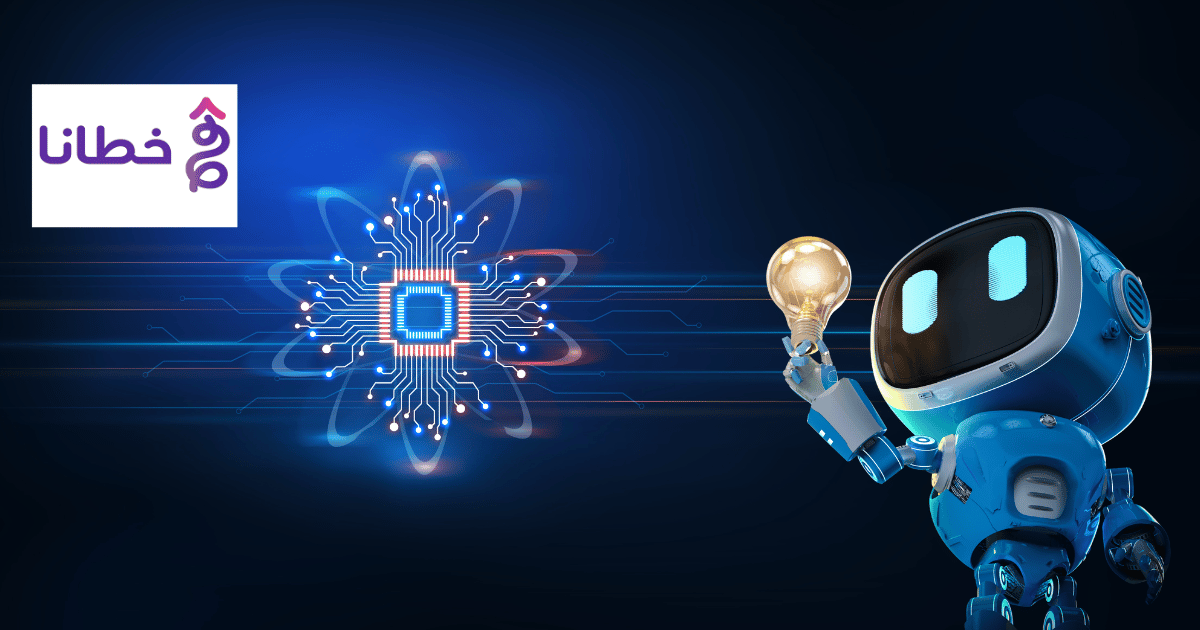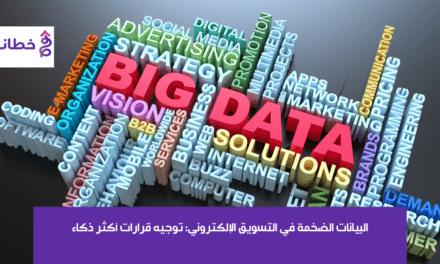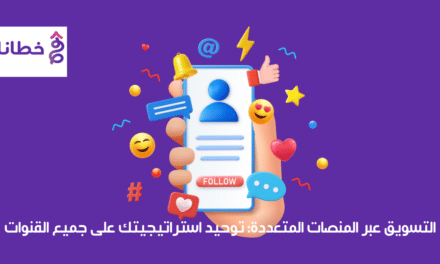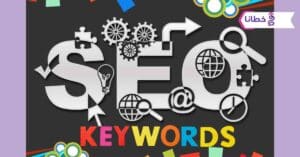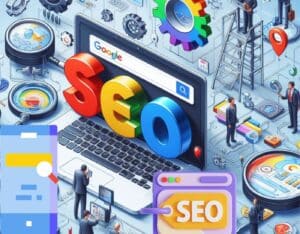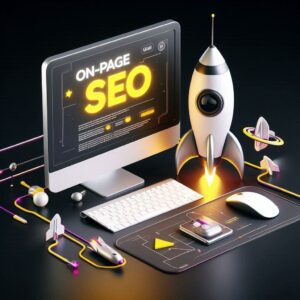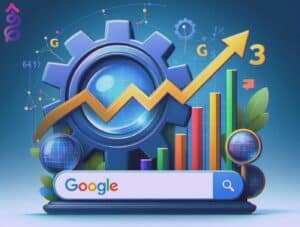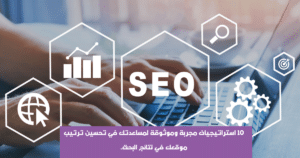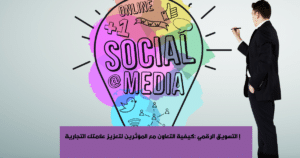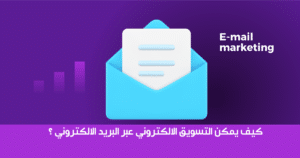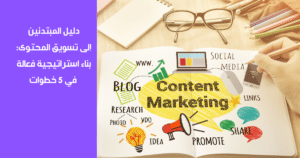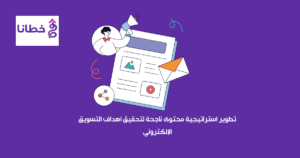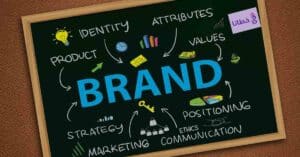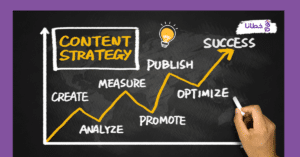table of contents
In a rapidly evolving digital world, artificial intelligence has become an indispensable tool in digital marketing. This advanced technology is capable of analyzing data with high accuracy, extracting valuable insights that help companies make effective strategic decisions. In this article, we’ll explore how to leverage artificial intelligence to enhance digital marketing strategies and achieve outstanding results.
The importance of artificial intelligence in e-marketing:
1- Customize content and offers:
Artificial intelligence can analyze user behavior and preferences to deliver personalized content and offers to each individual. This increases user engagement and improves conversion rates.
2- Demand forecasting and expectations:
Using machine learning models, AI can predict demand for products and services, helping with strategic planning and better inventory management.
3- Improving user experience:
By analyzing browsing behavior and interactions, AI can improve website design and user experience to increase retention and conversion rates.
4- Accurate data analysis:
Artificial intelligence can process massive amounts of data quickly and efficiently, helping extract deep insights about the market and customers. This information helps develop targeted marketing strategies.
5- Predictive marketing and personalized recommendations:
Using machine learning techniques, AI can predict customer needs and provide personalized recommendations for appropriate products and services.
Uses of artificial intelligence in e-marketing strategies:
1- Search Engine Optimization (SEO):
Artificial intelligence can analyze website content and identify the most effective search terms, as well as optimize the website’s infrastructure to improve search rankings.
2- Email marketing:
Using AI analytics, you can create more effective, personalized email campaigns, identifying the optimal sending time and the most engaging content.
3- Data-driven marketing:
AI can analyze big data to identify the most profitable target audiences and develop personalized campaigns for them.
4- Retail Marketing:
Using advanced segmentation and analysis, AI can segment user audiences into smaller segments to focus on their individual needs.
5- Predictive marketing:
Artificial intelligence uses predictive models to identify future customer behaviors and provide appropriate recommendations for products and services.
Powerful Marketing Strategies with Artificial Intelligence
Here are some powerful marketing strategies using AI:
1- Personalized marketing and dynamic personalization:
- Using artificial intelligence algorithms to analyze data about your target audience and personalize content and ads based on their preferences and behaviors.
- Create interactive and dynamic experiences that adapt to each individual user.
2- Smart prediction and recommendations:
- Using machine learning models to predict user behavior and forecast their interests and the products they might purchase.
- Providing personalized recommendations for products and services based on predictions.
3- Improving user experience:
- Using artificial intelligence to analyze user interactions and improve website design and user interface.
- Developing automated conversations (chatbots) to improve customer service and respond quickly to their inquiries.
4- Content management and automated production:
- Using artificial intelligence systems to generate diverse marketing content such as articles, tweets, and videos.
- Analyze data to determine the best times and channels to publish content.
5- Advanced analytics and data-driven decisions:
- Using advanced AI models to analyze marketing and sales data and provide valuable insights.
- Make strategic decisions based on data and smart analytics.
These are some examples of how AI can be used to enhance marketing strategies. It will require planning and investment in technical infrastructure, but the return on investment can be significant.
Artificial intelligence techniques in improving marketing strategies
There are many AI techniques that can be used to improve marketing strategies. Here are some key examples:
1- Prediction and personal recommendations:
- Machine learning models to analyze user behavior and predict their interests and preferences.
- Recommendation algorithms to suggest personalized products and services to each user.
2- Natural Language Processing (NLP):
- Text analysis to understand user intent and improve search and interaction experiences.
- Generate natural and intelligent marketing content using advanced language models.
3- Advanced insights and analysis:
- Deep learning models to extract deep insights from big marketing data.
- Forecasting algorithms to anticipate future market trends and behaviors.
4- Interactive and personalized marketing:
- Using artificial intelligence to analyze user behavior in real time and personalize content.
- Create AI-powered interactive experiences to improve user engagement.
5- Automated response and customer service:
- Develop intelligent chatbots to assist customers and answer their inquiries.
- Analyze customer calls and interactions to improve service and support.
By using these smart technologies, businesses can enhance the effectiveness of their marketing strategies and reach a more targeted and personalized audience. They enable smarter, more proactive decisions in an ever-changing marketing environment.
Artificial intelligence tools in e-marketing
There are many AI tools available for marketers and businesses to apply in the field of digital marketing. Here are some notable examples:
1- Recommendation systems:
- IBM Watson Recommendations to create intelligent, user-relevant advice.
- Amazon Personalize platform for personalized product recommendations.
2- Artificial intelligence conversations:
- Chatfuel for building interactive and intelligent conversations on websites and social platforms.
- Dialogflow (Google) for designing and developing advanced chatbots.
3- Text and data analysis:
- MonkeyLearn for sentiment and topic analysis in text data.
- Acrolinx to improve content quality and brand consistency.
4- Forecasting and expectations:
- Forecast.io to forecast trends and future marketing activity.
- Dataiku DSS for data modeling and creating reliable predictions.
5- Specialization and individualization:
- Dynamic Yield to improve personalization and conversion on websites.
- Personyze to personalize content and experience for individual users.
These are just a few examples of powerful AI tools that businesses can use to enhance their digital marketing efforts and reach their target audience more effectively.
Read about: How to use artificial intelligence to personalize e-marketing campaigns.
How can I benefit from artificial intelligence in e-commerce?
There are many ways e-commerce companies can benefit from using AI technologies:
1- Personal recommendations:
- Use AI-based recommendation models to deliver personalized products and content to each customer.
- This helps increase sales and engagement by enhancing the shopping experience for customers.
2- Demand forecasting and inventory planning:
- Using machine learning techniques to analyze historical data and predict future demand for products.
- This helps in managing inventory efficiently, reducing costs and improving supply chain operations.
3- Monitoring and analyzing behavior:
- Using artificial intelligence tools to monitor and analyze user behavior on the website.
- This helps understand customer preferences, improve the shopping experience, and increase conversion rates.
4- Automated responses and smart support:
- Using chatbots and artificial intelligence to provide immediate customer support and quickly resolve issues.
- This helps improve customer satisfaction and reduce customer support costs.
5- Smart pricing:
- Use AI-based pricing models to determine optimal product prices.
- This helps improve profits and keep prices competitive.
In short, AI offers e-commerce businesses numerous opportunities to improve their operations, and customer experience, and increase revenue.
You can read more about: Analyzing user behavior on your website and directing marketing strategies
How has the emergence and advancement of artificial intelligence contributed to the development of e-marketing strategies?
The development of artificial intelligence technologies has brought about fundamental changes in e-marketing strategies, in several aspects:
1- Allocation and recommendation:
- Personalizing content, offers, and ads for each user, improving user experience and increasing engagement and conversion rates.
- Artificial intelligence has helped companies analyze user behavior and preferences more accurately.
2- Forecasting and planning:
- Using machine learning models, businesses can predict future demand for their products and services.
- Strategically plan marketing campaigns, budgets, and inventory more efficiently.
3- Improve performance:
- Artificial intelligence can analyze the effectiveness of marketing campaigns and identify strengths and weaknesses.
- This has led to improved marketing strategies and increased returns on investment.
4- Quick response:
- Chatbots and artificial intelligence have allowed businesses to quickly respond to customer inquiries.
- This enhanced customer experience and increased customer satisfaction.
5- Dynamic pricing:
- Using AI-based pricing models, businesses can dynamically adjust prices based on demand and competition.
- This helped maximize profits and improve competitiveness.
Overall, the development of artificial intelligence has revolutionized digital marketing strategies, enabling companies to improve their services and increase revenue.
Khutana Company for Electronic Marketing and Search Engine Optimization Services
Khutana is a leading company in the field of electronic marketing in the Arab world, relying on experts specialized in the field of electronic marketing and search engine optimization. You can contact them through the following link: https://khutana.com.
What are the artificial intelligence sites for digital marketing?
There are several sites that focus on AI applications in digital marketing, including:
1- Marketing AI Institute (https://www.marketingaiinstitute.com): This site provides research, tools, and resources on the uses of artificial intelligence in digital marketing.
2- TechEmergence (https://www.techemergence.com): This site specializes in analyzing artificial intelligence applications in business and industry, including marketing.
3- Martech Today (https://martechtoday.com): This site specializes in marketing techniques and the technology that supports marketing activities, including artificial intelligence.
4- VentureBeat (https://venturebeat.com): This site covers news and analysis on AI applications in various fields, including digital marketing.
5- Adweek (https://www.adweek.com): This news platform covers the latest developments in artificial intelligence and digital technology in marketing.
6- MarketingAI.com (https://www.marketingai.com): This site provides resources and research on the use of artificial intelligence in marketing and advertising.
These are some prominent websites that focus on AI applications in digital marketing. There are also many other resources you can consult to stay up-to-date on the latest developments in this field. Amid the accelerating digital transformation, AI has become an indispensable tool in the world of digital marketing. By accurately analyzing data and providing valuable insights, AI can enhance the effectiveness of digital marketing strategies and achieve outstanding results. As this technology continues to evolve, businesses will be increasingly able to personalize, predict, and reach their audiences more effectively.
Questions about the article: Artificial Intelligence Boosting E-Marketing Strategies 2025
How does artificial intelligence affect e-marketing?
Through advanced machine learning algorithms and predictive analytics, AI facilitates unparalleled levels of personalization in marketing efforts, leading to increased consumer engagement, enhanced conversion rates, and stronger brand loyalty.
What is the role of artificial intelligence in marketing strategy?
AI solutions give marketers a better understanding of their customers and potential customers, allowing them to deliver the right message to the right person at the right time. Creating a truly comprehensive profile means collecting data during every interaction with the consumer.
Is artificial intelligence a marketing strategy?
AI marketing uses AI technologies to make automated decisions based on data collection, analysis, and additional feedback on audience or economic trends that may impact marketing efforts. AI is often used in digital marketing efforts where speed is essential.
Why is artificial intelligence important in e-marketing and startups?
An AI tool can use a statistical decision tree to identify marketing objectives and review historical data. Additionally, you can use AI and machine learning models to analyze customer behavior, identify patterns, and develop digital marketing strategies based on them.
We respect and value your time... half an hour to grow your project

